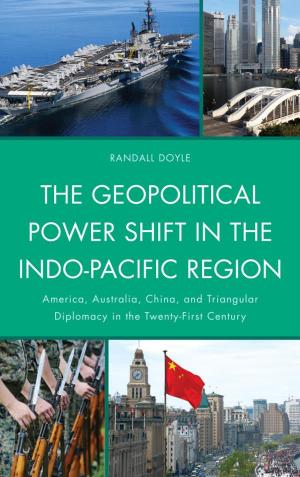Breaking Away
Kosovo’s Unilateral Secession
Nonfiction, Social & Cultural Studies, Political Science, International, International Relations| Author: | Argyro Kartsonaki | ISBN: | 9781498567190 |
| Publisher: | Lexington Books | Publication: | April 4, 2018 |
| Imprint: | Lexington Books | Language: | English |
| Author: | Argyro Kartsonaki |
| ISBN: | 9781498567190 |
| Publisher: | Lexington Books |
| Publication: | April 4, 2018 |
| Imprint: | Lexington Books |
| Language: | English |
This book presents the background that led to Kosovo’s success in separating from Serbia and explains the reasons for its failure to achieve uncontested statehood—both internally and externally. It sheds light to the process of Kosovo’s secession starting from its first unsuccessful attempt to secede in 1991and continuing to the present day. It shows how long and at the same time how lucky its secession was: Kosovo was eventually at the right place and the right time, being geographically located in Europe and having secured the support of the US at the time of its absolute supremacy in the international affairs. However, as this supremacy declined, Kosovo’s progress in international affairs declined too. Ten years after its unilateral declaration of independence, it has yet to achieve UN membership and uncontested statehood, and Kosovo also faces shortcomings in its internal function as a state. This book provides a holistic approach towards Kosovo’s secession from an international relations point of view. It takes into consideration events that happened in different times and different places and shows that secession is not merely an act that takes place in one specific time and place. It is rather a process that spans over time and events at different levels of analysis shape its outcome.
This book presents the background that led to Kosovo’s success in separating from Serbia and explains the reasons for its failure to achieve uncontested statehood—both internally and externally. It sheds light to the process of Kosovo’s secession starting from its first unsuccessful attempt to secede in 1991and continuing to the present day. It shows how long and at the same time how lucky its secession was: Kosovo was eventually at the right place and the right time, being geographically located in Europe and having secured the support of the US at the time of its absolute supremacy in the international affairs. However, as this supremacy declined, Kosovo’s progress in international affairs declined too. Ten years after its unilateral declaration of independence, it has yet to achieve UN membership and uncontested statehood, and Kosovo also faces shortcomings in its internal function as a state. This book provides a holistic approach towards Kosovo’s secession from an international relations point of view. It takes into consideration events that happened in different times and different places and shows that secession is not merely an act that takes place in one specific time and place. It is rather a process that spans over time and events at different levels of analysis shape its outcome.















